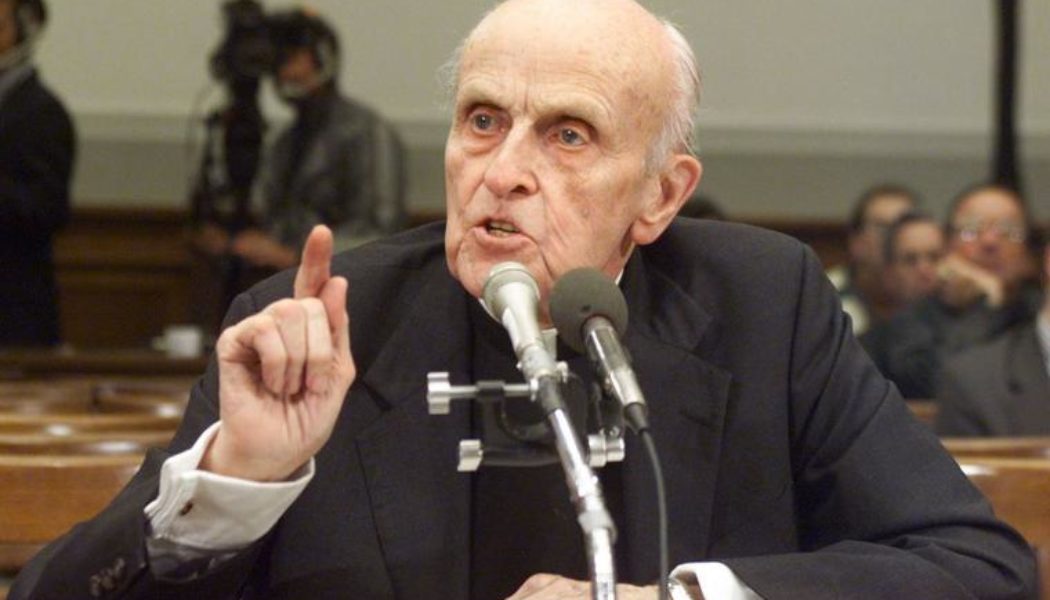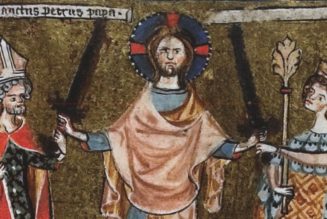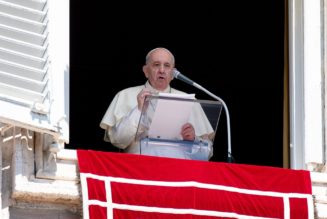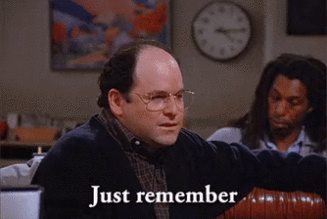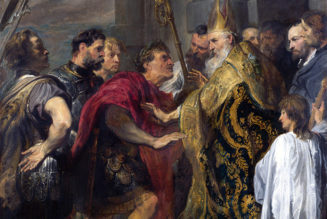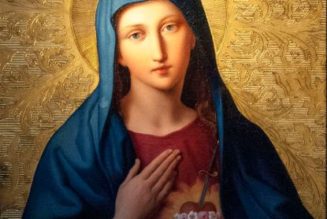
Need a prominent cleric to give cover to Catholic politicians who vote to preserve and expand abortion access? For more than 50 years, the Jesuits have had a man at the ready. It is a grave scandal in one of the Church’s most venerable orders.
Jesuit Father Pat Conroy, who served as chaplain of the House of Representatives from May 2011 to January 2021, gave an interview published this week in The Washington Post, in which he defended Catholic politicians who promote abortion access. He went so far as to cite St. Thomas Aquinas on conscience to defend his position, which is both embarrassing and beneath the dignity of a proper Jesuit formation.
For those with longer memories, the idea of a prominent Jesuit from the House of Representatives defending permissive abortion laws is not new. Father Conroy is a rather low-budget version of the late Jesuit Father Robert Drinan, but he remains a standard-bearer for what his brethren are wont to call “the Jesuit tradition.”
It was 15 years ago this week that Father Drinan was back in the spotlight. Recall the circumstances. In early 2007, Nancy Pelosi became the first woman Speaker of the House of Representatives, the capstone to a remarkable political career. That she is Speaker again 15 years later is further evidence of the formidable political force she remains.
Pelosi, cognizant of the milestone she had achieved in 2007, organized a four-day gala to mark her accession to the speakership. It began with a Mass “in recognition of House Speaker-Elect Nancy D’Alesandro Pelosi,” at her alma mater Trinity University in Washington, D.C. The main celebrant and homilist was Father Drinan, then 86 years old. It was his last major public event. He died later that same month.
Therein lies a scandalous tale of Jesuit complicity in abortion in America, a tale more completely told in an important new book from the late Jesuit Father Paul Mankowski, who knew how badly some of his brother Jesuits and his superiors had betrayed the Society of Jesus.
Father Robert Drinan was prodigiously talented, even by the high standards for which the 1960s Jesuits were known. He was dean of the law school at Boston College at age 36, and led that school to new heights over 14 years. In 1970 he ran for Congress from Massachusetts and was elected five times as a Democrat, serving from 1971 to 1981.
In May 1980, Pope St. John Paul II ordered him not to run for re-election that November, and thus Father Drinan left Congress in January 1981. John Paul’s decision was issued as part of a wider prohibition on clerics holding political office. When definitive word came from the Pope, Father Drinan obeyed, saying that defiance was “unthinkable.” Defiance had been his modus operandi for a decade, in fact.
Father Drinan ran in 1970 on a strong anti-Vietnam War platform and was the first congressman to introduce articles of impeachment against President Richard Nixon. After Roe v. Wade in 1973, he defended the decision and was a reliable vote in favor of expanding the abortion license, including taxpayer funding, for the duration of his congressional service.
The Jesuit priest was the godfather of the Democrats becoming the party of abortion, a transformation led by Catholic Democrats — Ted Kennedy, Joe Biden, Mario Cuomo and later Pelosi herself. No Catholic priest ever did more to promote abortion in law than Father Drinan.
The Mass 15 years ago this week was a fitting valedictory, passing on the baton of pro-abortion politics to Pelosi, who looked to him as an inspiration of how a faithful Catholic could promote abortion access.
“Father Drinan was an inspiration to so many in Congress, not just those who served with him but those of us who came after,” the new Speaker said upon his death. “I am particularly honored that earlier this month, Father Drinan presided over a Mass at my alma mater, Trinity University, before I was sworn in as Speaker. He celebrated that Mass in honor of the children of Darfur and Katrina, preaching that ‘the needs of every child are the needs of Jesus Christ himself.’ Throughout his life, Father Drinan not only preached that message of justice and human rights; he embodied it.”
Yes, Father Drinan’s last public event was to announce that “the needs of every child are the needs of Jesus Christ himself” while feting the most pro-abortion Speaker in U.S. history.
Throughout the 1970s, it was often asked how Father Drinan could have served in Congress as a priest, let alone a priest who used his legislative vote and public position to promote abortion. Father Drinan and his Jesuit confreres repeatedly gave the impression that he had received approval from his Jesuit superiors and his local bishops.
It was a lie.
We now know that more fully, thanks to Father Mankowski, a Jesuit even more brilliant than Father Drinan, who died suddenly in September 2020.
Ignatius Press, founded by Father Joseph Fessio, another Jesuit eager for the truth to be known, published recently Jesuit At Large: Essays and Reviews by Paul V. Mankowski, S.J., edited by George Weigel.
The posthumous collection makes available some of Father Mankowski’s scintillating essays and reviews, which are both fierce and hilarious, sometimes simultaneously. The collection is a worthy introduction for those who haven’t read Father Mankowski — and a cause for regret that they didn’t read him earlier.
The most remarkable part of the book is a previously unpublished memorandum from April 2007, sent by Father Mankowski to some of his friends, entitled: “The Drinan Candidacy and the New England Province Archives.” Though he never published it himself, given his troubles with his Jesuit superiors, he clearly wanted an accurate record to be available for posterity.
That record is now available. It makes clear what many Catholics regarded as a scandal in the 1970s was actually much worse.
Father Mankowski was doing research in the New England Jesuit archives in the early 1990s. He came across Father Drinan’s files. He asked for and was given permission to make copies of the material for an article on Father Drinan’s service in Congress.
Father Mankowski discovered that, far from permission to run for Congress, the Jesuit superior general, Father Pedro Arrupe, repeatedly forbade it. Father Drinan and Jesuit Father William Guindon, the New England provincial, conspired to favor Father Drinan’s candidacy and to frustrate Father Arrupe’s orders. The files provide in great detail the lies and evasions of both Fathers Drinan and Guindon over many years.
Father Mankowski knew that the material would correct the impression that the Jesuit order as a whole was pleased with Father Drinan promoting abortion in Congress. It would also reveal how perfidious senior New England Jesuits were in the 1970s.
Father Mankowski decided not to write an article on Father Drinan’s candidacy. It was a supremely unpleasant business, and Father Drinan seemed to be a “spent force.”
Until June 1996, that is. The New York Times published an op-ed by Father Drinan “as a Jesuit priest,” praising President Bill Clinton’s veto of the ban on partial-birth abortion. That a priest would desire to keep partial-birth abortion legal shocked even those who were sympathetic to him.
Cardinal John O’Connor was furious, writing in his Catholic New York column: “I am deeply sorry, Father Drinan, but you’re wrong, dead wrong. You could have raised your formidable voice for life; you have raised it for death. Hardly the role of a lawyer. Surely not the role of a priest.”
Father Mankowski judged that the return of Father Drinan to public controversy required the truth to be told. He gave his materials to professor James Hitchcock, the distinguished historian at the Jesuit St. Louis University. Hitchcock published the material in an article that summer in Catholic World Report, “The Strange Political Career of Father Drinan.”
The Jesuits erupted in poker-hot rage. Not at Father Drinan for his position, not at the Jesuits who enabled it, not at the superiors who covered up the lies. The American Jesuit leadership brought down the hammer on Father Mankowski, who did not conceal his role in providing the archival material to Professor Hitchcock.
“The results of all this for Paul Mankowski were draconian,” writes Weigel in his editor’s introduction. “He was forbidden for years to publish under his own name. He was constrained in his pastoral work. He was often treated as a pariah. And while he was eventually permitted to take final religious vows and become a ‘spiritual coadjutor’ within the Society of Jesus, Mankowski was refused ‘full incorporation’ into the Society (which involves the famous Jesuit ‘fourth vow’ of obedience to the pope with respect to mission).”
The publication of the Father Mankowski memorandum with its supporting documentation is, as Weigel, writes “essential for the posthumous vindication of Father Mankowski’s honor,” so long besmirched by some of his Jesuit brethren, even as they heaped lavish laudations upon Father Drinan.
Fifteen years on from Father Drinan’s final benediction for Pelosi, both the Speaker and President Joe Biden turn to Jesuits for political cover for their abortion politics. Both of them sought audiences recently from the first Jesuit pope, with Biden claiming the approval of Pope Francis to continue receiving Holy Communion at the Jesuit parish in Washington that he attends.
A former Jesuit provincial himself and admirer of Father Arrupe, Pope Francis would no doubt be scandalized — if not surprised — to learn of the extent of Jesuit complicity in the monstrous scandal that was the congressional career of Father Robert Drinan.
To what extent have such Jesuits — in a great calumny upon the many other faithful fathers and brothers — become famous for complicity in giving cover to Catholics who promote the abortion license?
Consider this 1997 column from Maureen Dowd of The New York Times, a Catholic who favors liberal abortion laws. She was writing about Nothing Sacred, a TV show in which a “hip, glib, cute young priest” drives his penitent to get an abortion:
“I didn’t think the show reflected the point of view of the entertainment elite or, as some critics have ranted, of its ‘non-practicing’ Jewish producers,” Dowd wrote. “I recognized the point of view of the Jesuit elite. Jesuits are the flyboys of the church, the teaching intelligentsia most likely to be found drinking pricey wine and traveling abroad and devising interpretations of church dogma.”
In this special “Ignatian Year” declared by the Society of Jesus, the Ignatian priority on the examination of conscience would seem fitting regarding the political activity of Father Drinan, now that Father Mankowski’s memorandum has revealed a more complete story.
Epilogue:
In a previous article, I wrote about the failed attempt by St. John Paul II to reform the Jesuits in October 1981. It is surely the case that the scandal of Father Drinan, and the apparent inability of Father Arrupe to do anything about it, contributed to John Paul’s conclusion that the Jesuit leadership was incapable of reforming itself.
In that, Father Mankowski concurred. In a 2004 letter included in Jesuit at Large, he writes to a young man enquiring about entering the Society:
“It is my conviction that, at present, the Society of Jesus is a corrupt order. That means that it has serious problems in all its endeavors at all levels of authority, and, more importantly, it has lost the capacity to mend itself by its own internal resources. … In all candor I have to say that, at present, I see no indication whatever of the capacity or a willingness on the part of the Roman Jesuit leadership to address and remedy these problems.”
Father Mankowski had not lost hope though, and knew that the charism of Ignatius was poured into earthen vessels. He passed on this advice, despite the bleak state of the Society: “That said, if I had to do it all over again, knowing what I know now, I would enter the Jesuits tomorrow.”
One hopes that Father Mankowski is now doing his bit for Jesuit reform, now blessedly beyond the reach of superiors bent on frustrating that essential mission.
Join Our Telegram Group : Salvation & Prosperity
